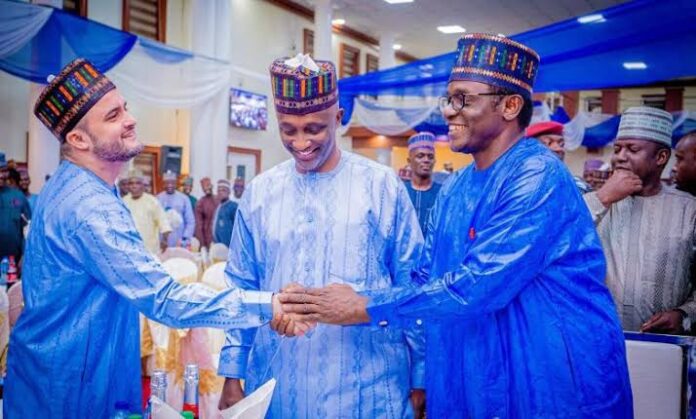The Yobe State Emergency Management Agency (YOSEMA) has partnered with the United Nations Development Programme (UNDP), with funding from the government of Japan, to provide entrepreneurship skills training in the Kukuri and Tandari communities. This program also collaborates with the United Nations Population Fund (UNFPA) and the Portrait of Lake Child Initiative (PLCI).

The training session took place in Potiskum and Nangere Local Government Areas, where community stakeholders gathered to learn valuable skills that can help improve their livelihoods. Dr. Mohammed Goje, the Executive Secretary of YOSEMA, was represented by Ahmed Haruna Daya, who opened the event by expressing the agency’s commitment to supporting the program for the benefit of community members. He encouraged participants to focus on the training topics to effectively implement the skills learned in their respective communities.
Dr. Zarah Yusuf, the Executive Director of the Portrait of Lake Child Initiative, informed attendees that the program aims to support **170 beneficiaries**, with **110 from Tandari** and **60 from Kukuri**. These beneficiaries have been identified as victims of Gender-Based Violence (GBV) and have previously received training in various skills, including tailoring, shoe and bag making, confectionery, cosmetology, and groundnut cake production.
Dr. Yusuf urged the training participants to monitor the beneficiaries closely to ensure that the funds and support they receive are used wisely to enhance their income and sustainability. This emphasis on accountability is crucial for the long-term success of the initiative.
One of the facilitators, Ahmed Abdullahi, led a session on the “Sustainability of Community-Based Skills Centers.” He outlined the training objectives and discussed the importance of sustainability in skills acquisition centers. Participants learned about key concepts of sustainability, long-term planning, and strategies for managing resources effectively. The training also included group work and presentations, focusing on monitoring and evaluation techniques to ensure ongoing improvement and adaptation.
The program also aimed to identify existing small-scale business opportunities in the Tandari and Kukuri communities. Participants discussed best practices, challenges, and gaps in the local economy, brainstorming ways to improve the entrepreneurial landscape.
This initiative is part of a broader effort to empower communities in Yobe State, particularly those affected by conflict and economic hardship. By equipping individuals with essential skills and knowledge, the program seeks to foster economic resilience and improve the overall quality of life in these communities.
As the training progresses, the collaboration between YOSEMA, UNDP, and other partners highlights the importance of community engagement and support in addressing the challenges faced by vulnerable populations. The focus on entrepreneurship skills is expected to create new opportunities for beneficiaries, helping them to rebuild their lives and contribute positively to their communities.
The entrepreneurship skills training in Yobe State represents a vital step towards empowering local communities, particularly those impacted by gender-based violence. With continued support and effective implementation, this initiative has the potential to drive sustainable economic growth and improve the livelihoods of many individuals in the region.




